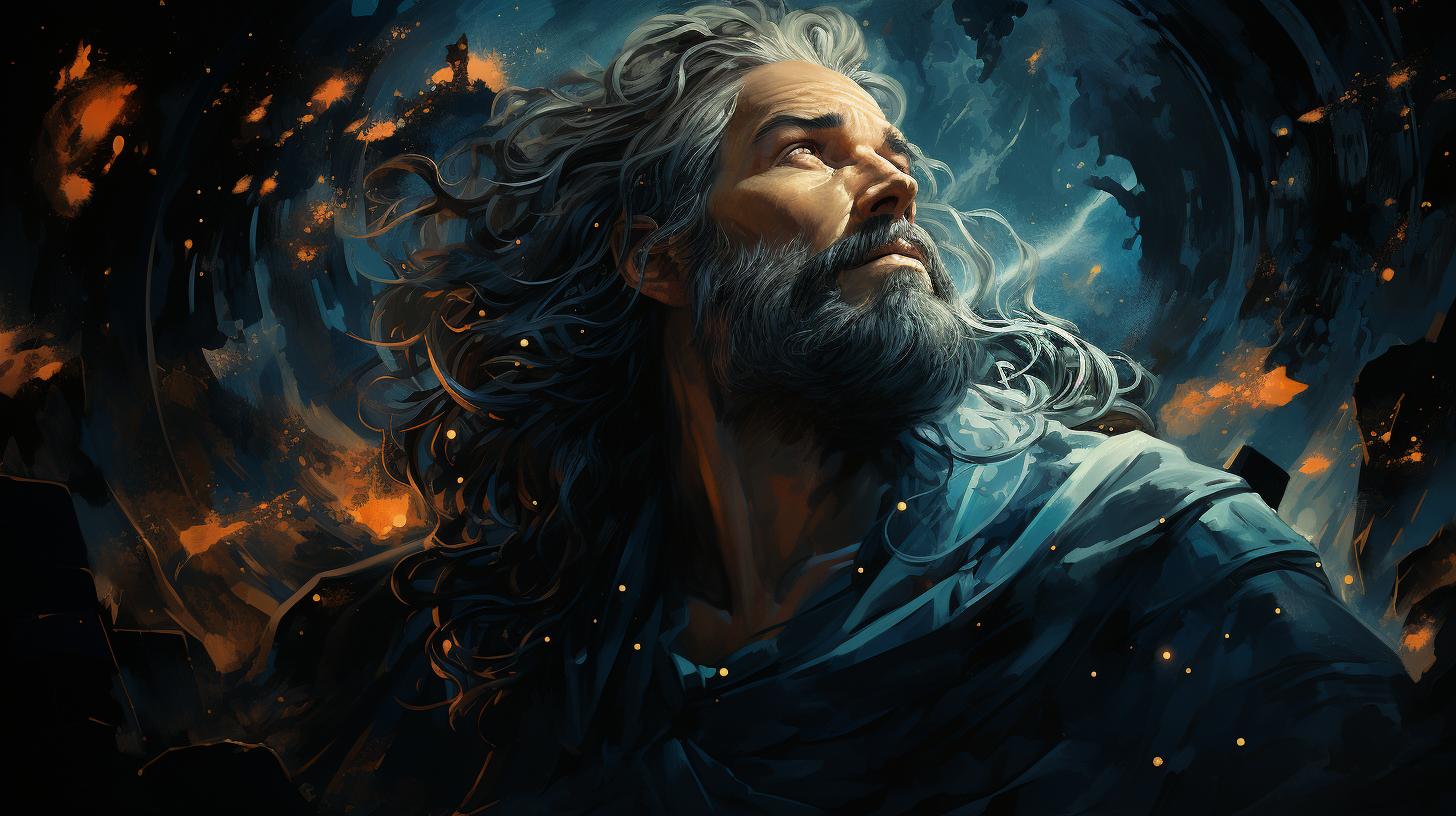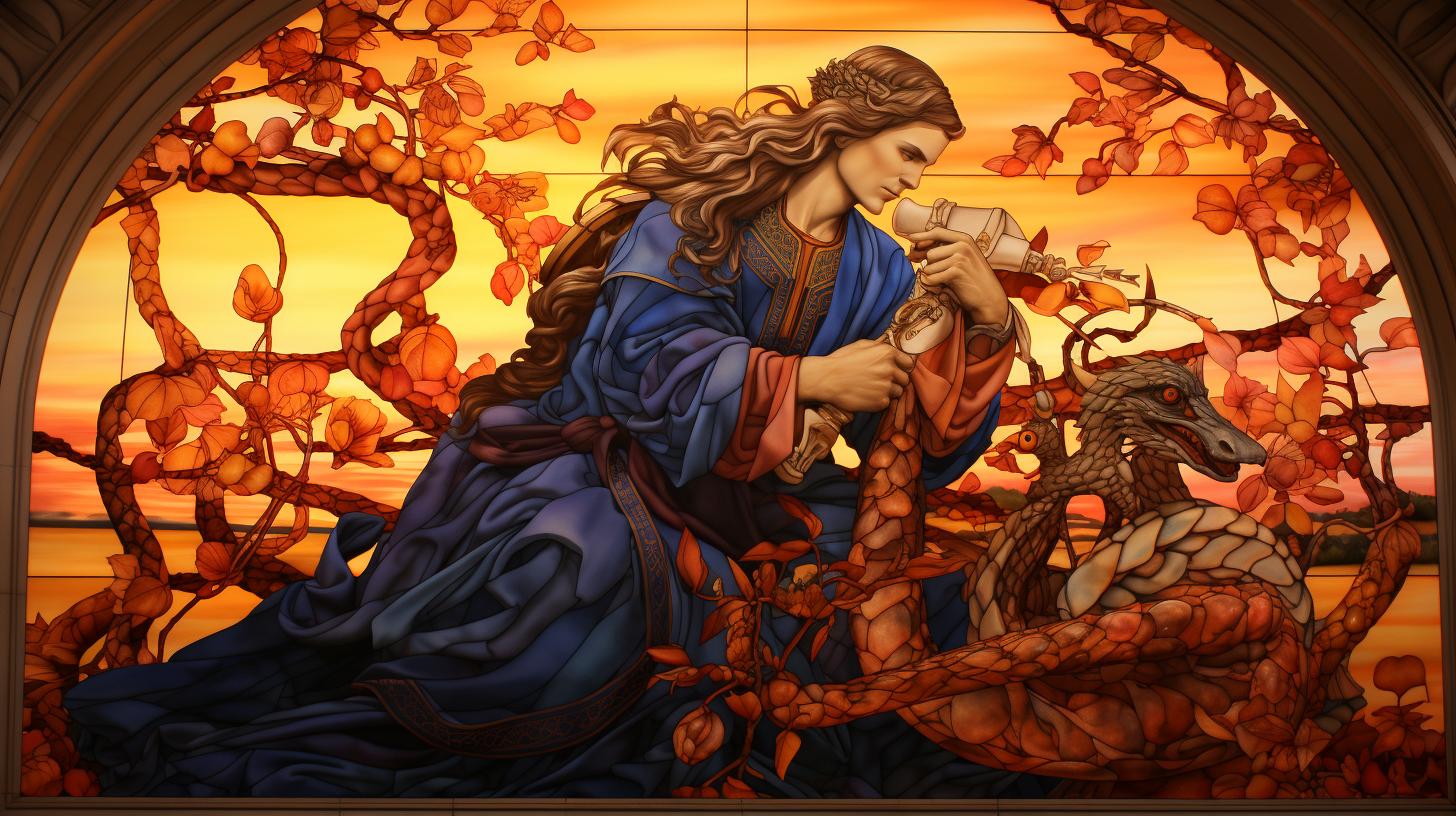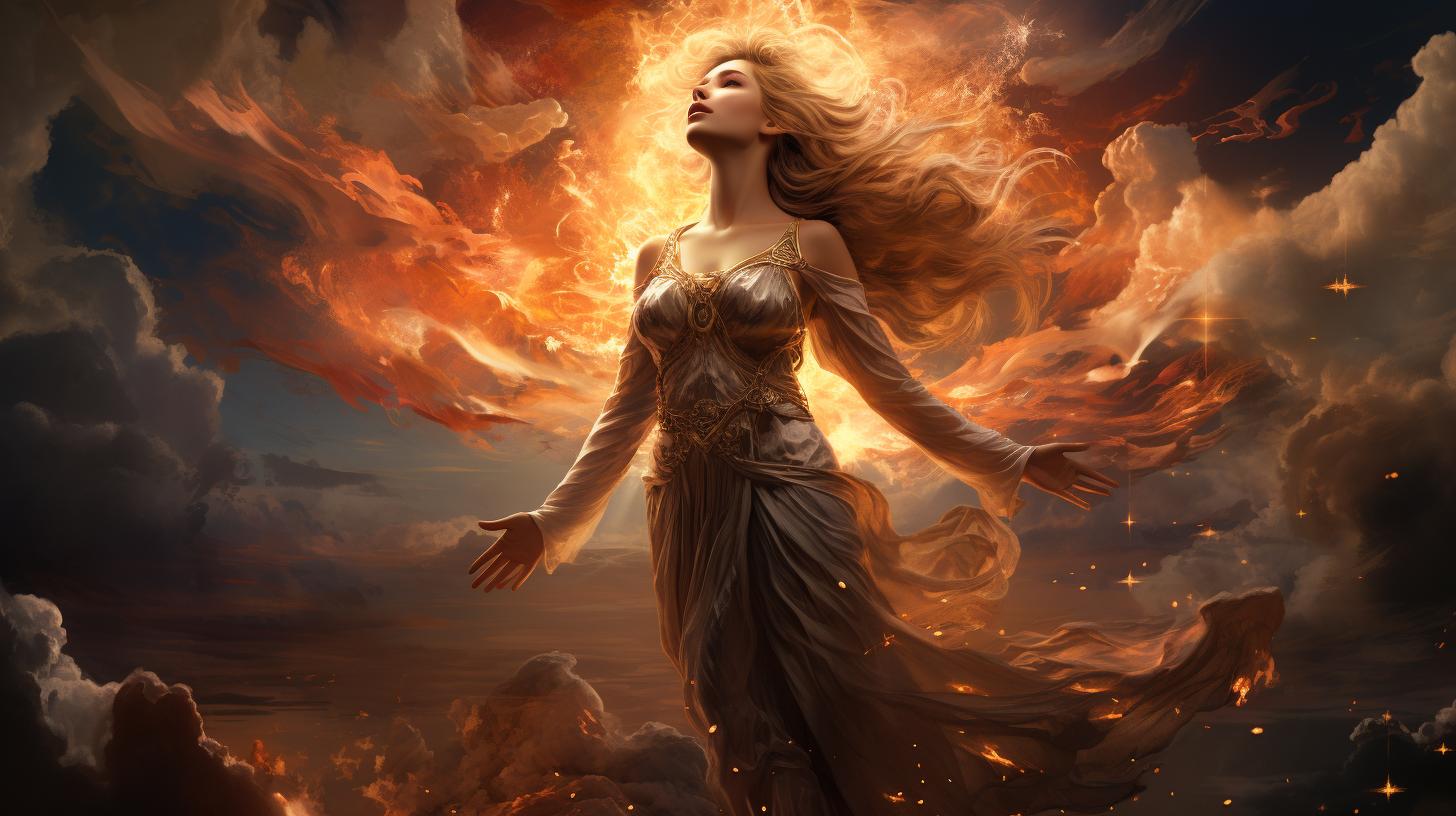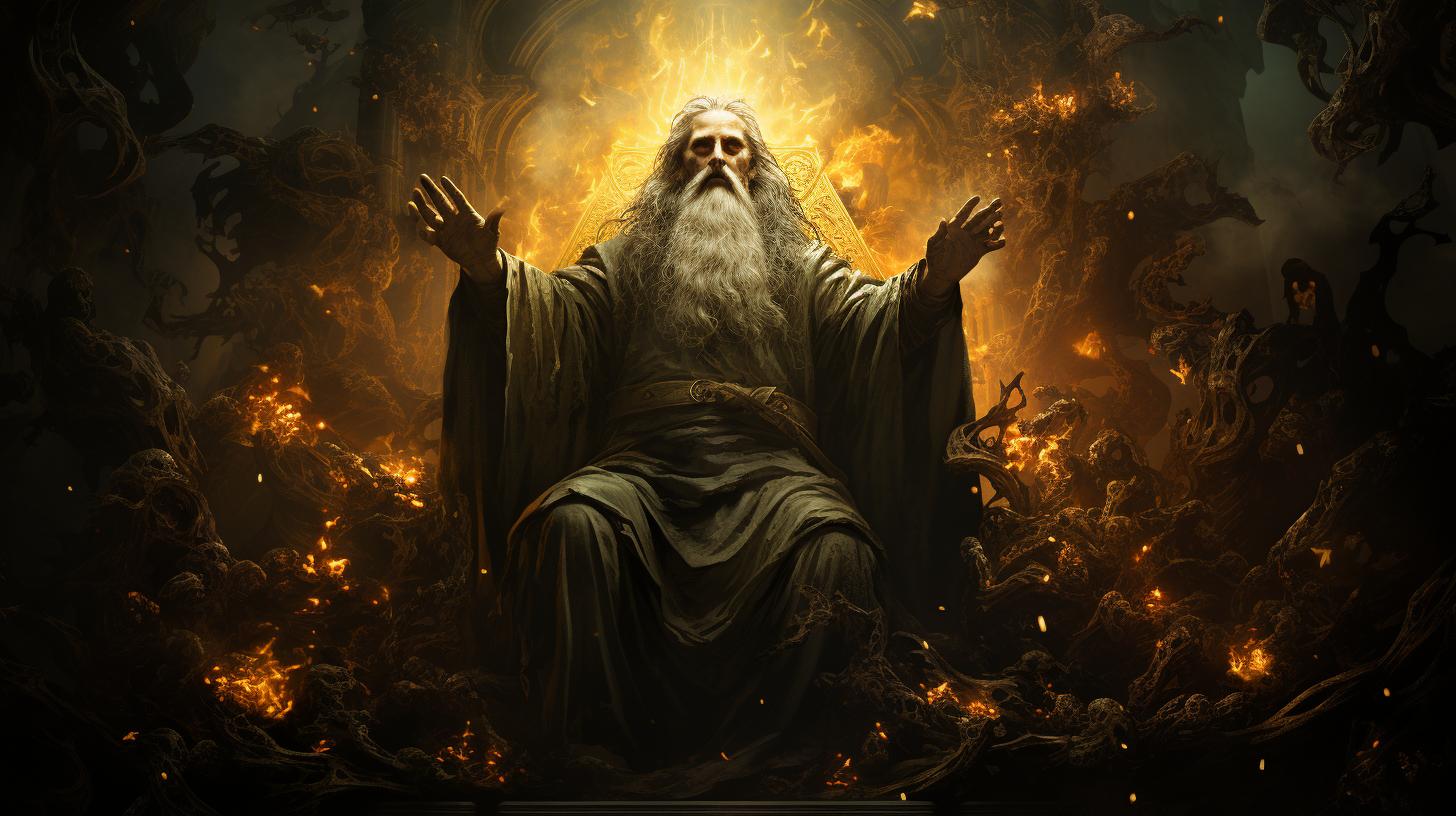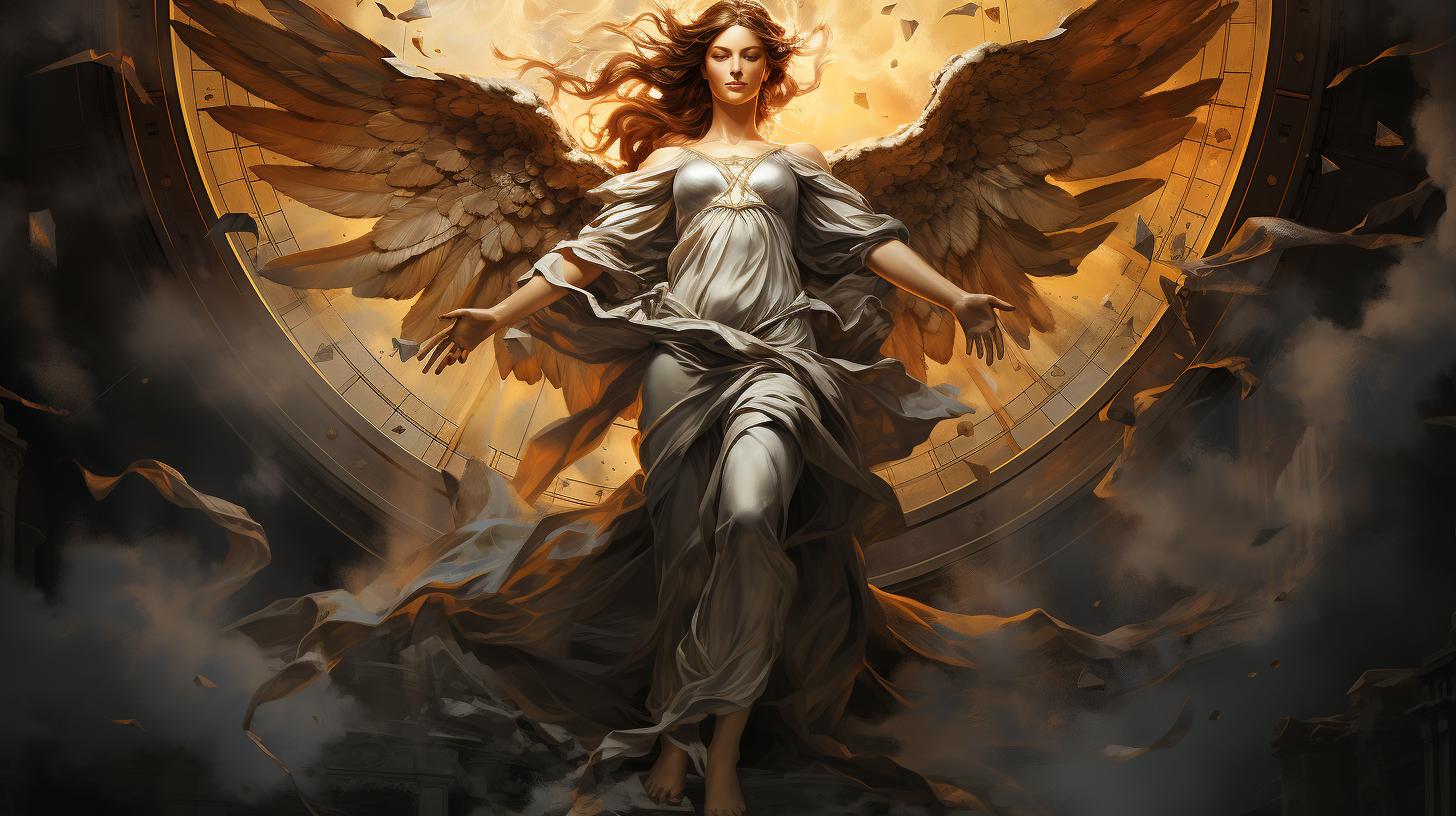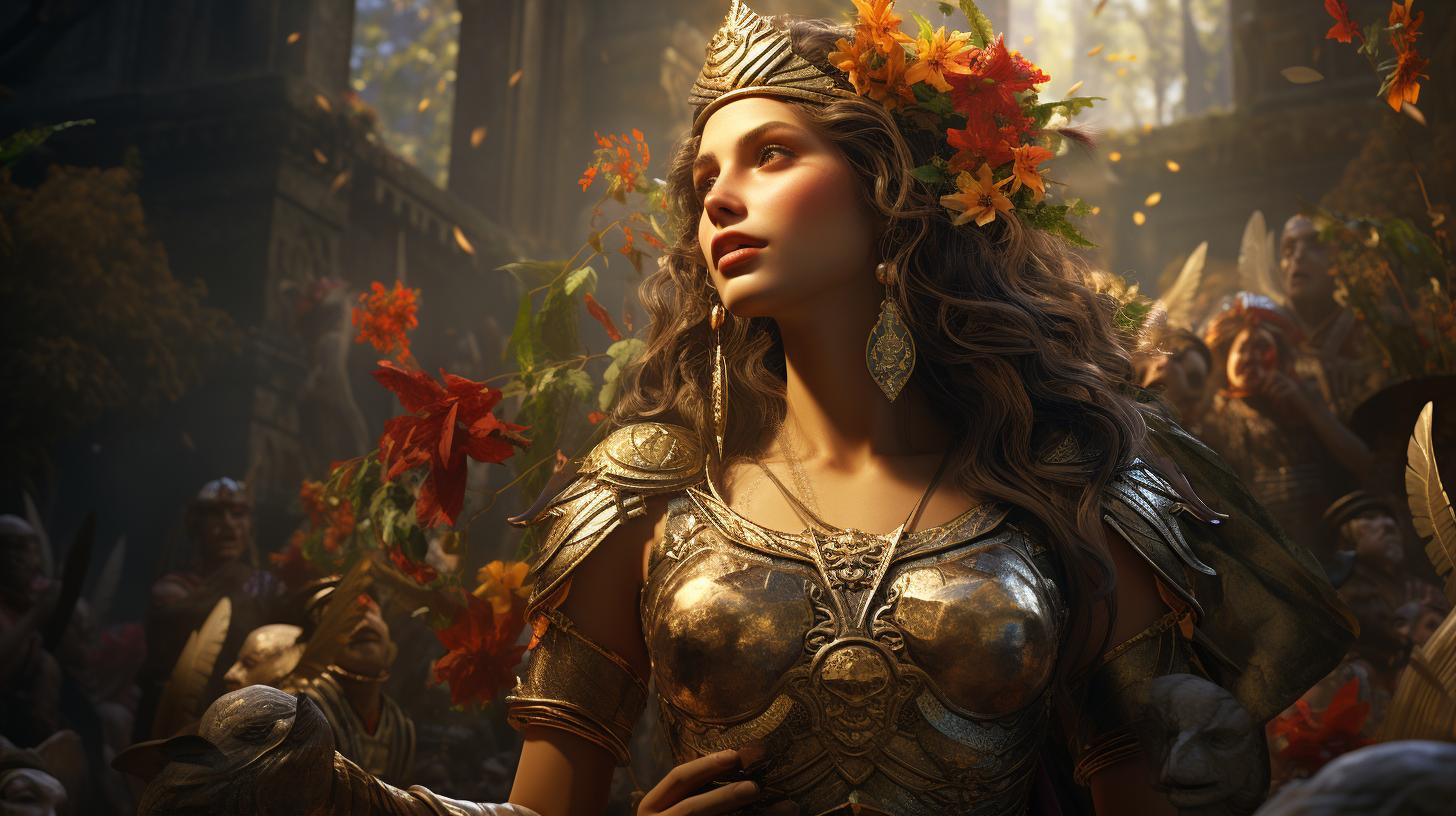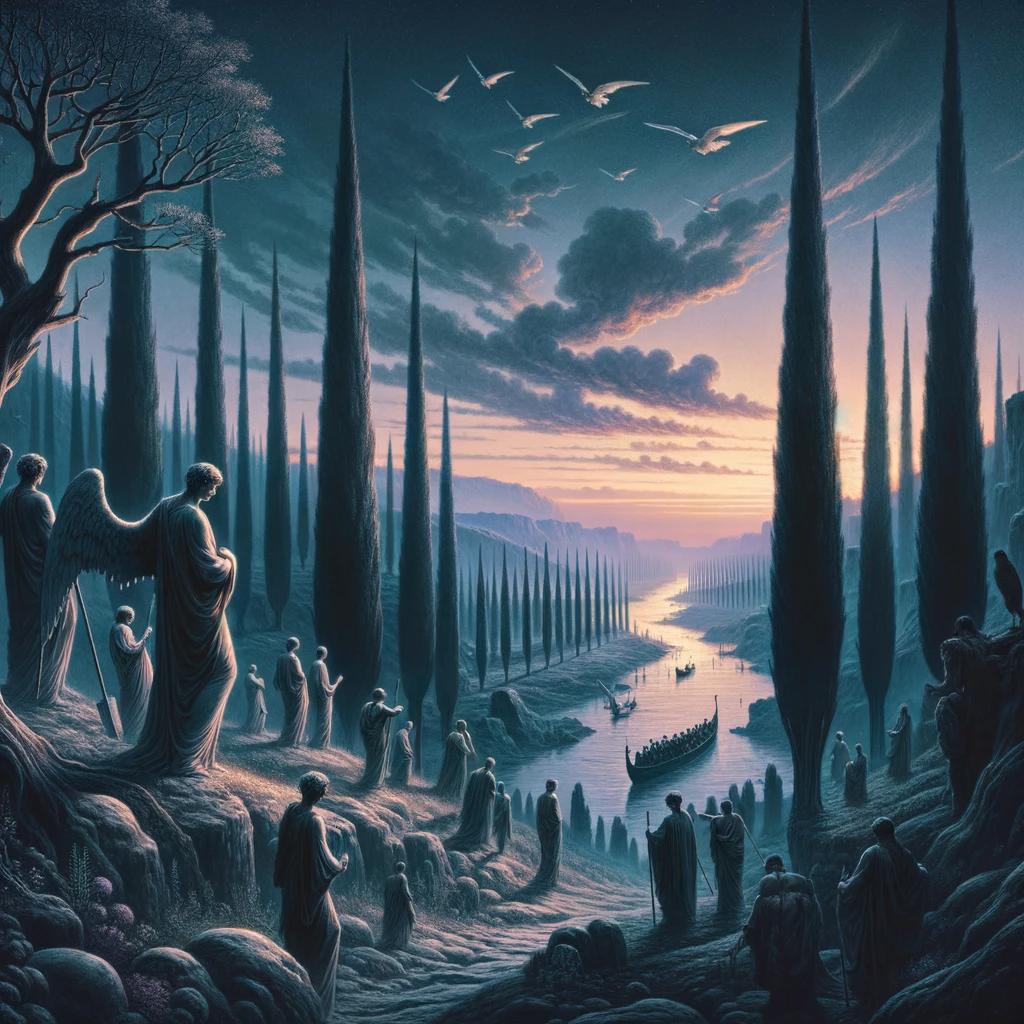Caelus Roman God: Exploring the Mythology and Symbolism
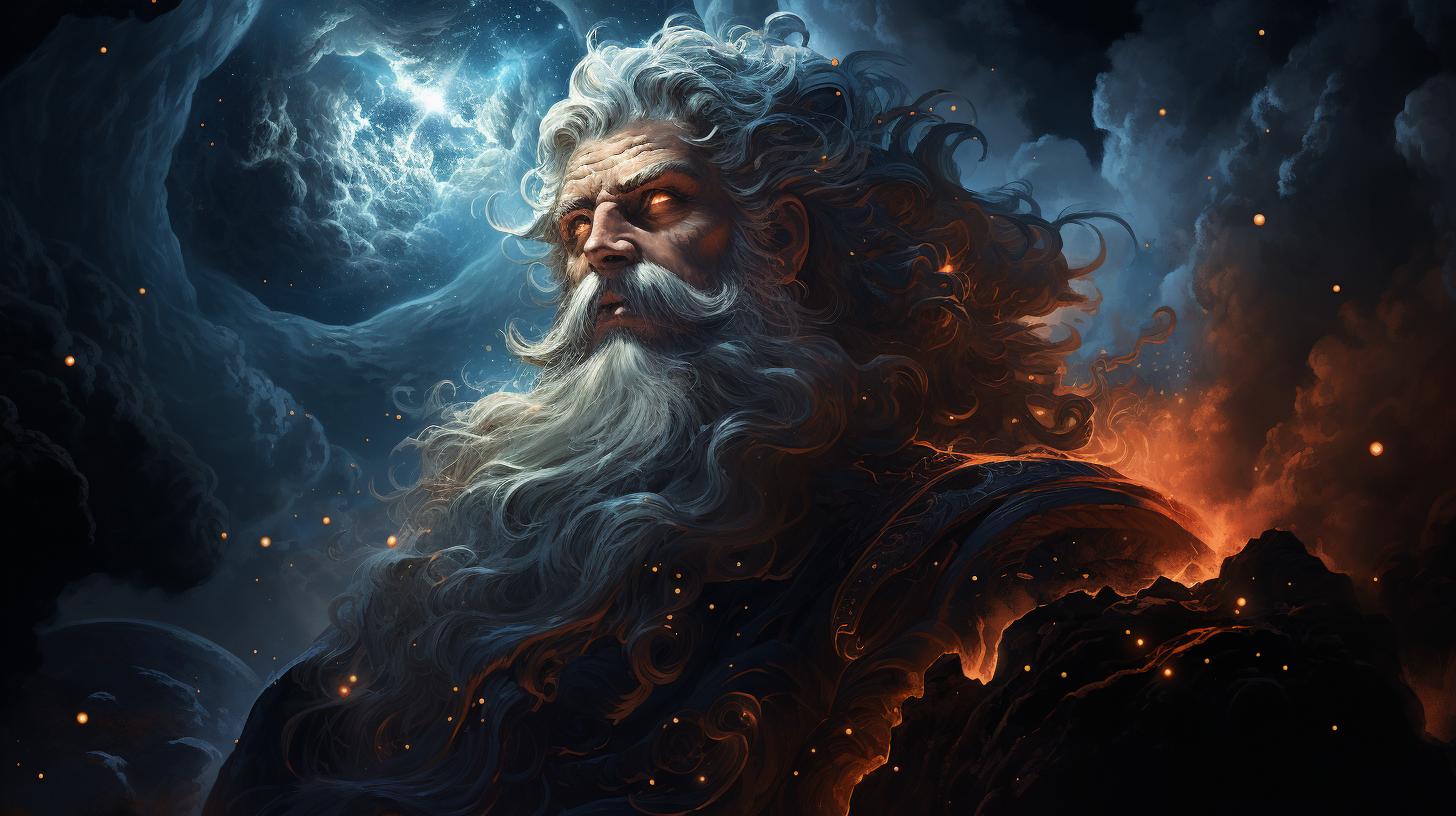
Caelus Roman God, a significant figure in Roman mythology, was considered a primordial deity associated with the sky and heavens. He bore resemblance to the Greek god Uranus and held a prominent role in Roman culture.
As the father of notable deities such as Mercury, Janus, and Saturn, Caelus played a crucial part in shaping the Roman pantheon. Depicted as a mature, bearded man, often seen holding a mantle symbolizing the sky, Caelus’s representations in Roman art showcased his celestial significance.
Throughout history, Caelus has influenced various aspects of Roman religion, mythology, and contemporary culture.
The Mythology of Caelus Roman God
Caelus, an integral figure in Roman mythology, holds a significant position as a primordial deity associated with the sky and heavens. This section delves into the origins and significance of Caelus in Roman mythology, comparing him to his Greek counterpart Uranus, and exploring his role as a primordial deity within Roman culture.
Origins and Significance of Caelus in Roman Mythology
As a primordial god, Caelus played a crucial role in the Roman pantheon. He was believed to be the offspring of Aether and Dies, and the parent of deities such as Mercury, Janus, Saturn, and Ops. Caelus’ significance stems from his association with the sky and firmament, symbolizing the vast expanse above.
Comparison with Greek counterpart, Uranus
Caelus shares similarities with the Greek god Uranus, both representing the personification of the sky. While they embody similar characteristics, it is important to note the distinct nuances in their mythology and cultural interpretations within the Roman and Greek traditions.
Caelus as a Primordial Deity in Roman Culture
Caelus held a position of prominence as a primordial deity in Roman culture, embodying the cosmic elements of the heavens. Often depicted as a mature, bearded man holding a symbolic mantle representing the sky, Caelus served as a crucial link between the mortal realms and the celestial domain.
Through his association with the sky, Caelus influenced various aspects of Roman life, art, and religious beliefs. His presence in both mythological tales and religious practices emphasized his essential role as a foundational deity in Roman culture.
Caelus and His Family
In Roman mythology, Caelus held a prominent position as the father of important deities and had a significant role in the divine family tree. Let’s explore more about Caelus’ lineage, parentage, and his relationships with other deities and consorts.
Caelus’ Lineage and Parentage
Caelus was born as the son of Aether and Dies, further solidifying his connection to the celestial realm. As a primordial deity, Caelus represented the sky and held immense power over the celestial domain.
Caelus as the Father of Important Roman Deities
Caelus was not only known for his divine nature but also for being the father of numerous significant Roman deities. His offspring included Saturn, Ops, Oceanus, the Titans, and the Giants.
These deities played pivotal roles in Roman mythology and shaped various aspects of the divine order.
Relationship with Tellus and Other Consorts
One of the notable relationships of Caelus was with the goddess Tellus, who personified the Earth. Together, they formed a celestial union, representing the divine harmony between the sky and the Earth.
This union resulted in the birth of Saturn, Ops, and other powerful deities.
In addition to his relationship with Tellus, Caelus also had other consorts and partners, expanding his influence and connections within the divine realm.
These relationships further enriched the mythological narrative surrounding Caelus and the Roman pantheon.
Through his lineage, parental role, and relationships with other deities, Caelus played a crucial part in the interconnected web of Roman mythology, shaping the divine hierarchy and depicting the balance between the celestial and earthly realms.
Representations and Symbolism of Caelus
Throughout Roman art and iconography, Caelus is depicted in various forms, representing the personification of the sky. These representations showcase his significance and the symbolism associated with his divine nature.
Depictions of Caelus in Roman art and iconography
In Roman artistic depictions, Caelus is often portrayed as a mature, bearded man holding a mantle over his head, symbolizing the celestial sky.
These representations can be found on the petasus worn by the Augustus of Prima Porta, as well as on altars dedicated to the Lares. Additionally, Caelus is often connected to the cult of Mithras, where he is represented as an eagle bending over the celestial sphere, symbolizing the starry sky.
Symbolism of Caelus as the personification of the sky
Caelus’ symbolism as the personification of the sky conveys his divine nature and authority over the celestial realm. As the father of various deities, including the powerful Saturn and Mercury, Caelus represents the overarching control and influence of the heavens in Roman mythology.
His representation as a bearded figure holding the sky mantle signifies his role in maintaining order and balance in the universe.
Caelus’ connection to celestial bodies and the universe
Besides being associated with the sky, Caelus is closely connected to celestial bodies and the celestial sphere. His role as the father of celestial beings, such as the constellations and celestial phenomena, highlights his connection to the vast cosmic elements.
Caelus’ prominence in Roman culture illustrates the significance placed on the observation and understanding of celestial bodies as indicators of divine power and influence.
- Caelus is represented as a mature, bearded man holding a sky mantle in Roman art.
- His depictions can be found on the Augustus of Prima Porta and altars dedicated to the Lares.
- Caelus’ symbolism as the personification of the sky represents his divine authority.
- His role as a father of powerful deities underscores his control over the heavens.
- Caelus’ connection to celestial bodies signifies his influence over cosmic elements.
Caelus in Roman Religion and Cult
The role of Caelus in Roman religious practices was significant and intertwined with the belief system of the ancient Romans.
As a primordial deity associated with the sky, Caelus held a revered position in the pantheon. He represented the celestial realm and was often associated with concepts of divinity, power, and cosmic order.
The role of Caelus in Roman religious practices
Caelus was considered a god of great importance, symbolizing the heavens and the celestial forces that governed the world. As such, he was venerated and invoked in various religious ceremonies and rituals.
Romans sought his blessings for good weather, bountiful harvests, and protection from celestial disasters.
Worship and offerings dedicated to Caelus
Worship dedicated to Caelus involved elaborate rituals conducted by Roman priests. Offerings such as incense, fruits, and sacrificial animals were presented to appease and honor the deity. These acts of devotion aimed to establish a connection with Caelus, seeking his favor and protection.
Caelus’ association with other Roman gods and cults
Caelus enjoyed a close association with several other Roman gods and goddesses. His relationship with Tellus, the goddess of the Earth, symbolized the cosmic harmony between sky and land.
Additionally, Caelus was often linked with other deities, including Saturn, Ops, Oceanus, and the Titans, as they formed a complex web of divine relationships within the Roman pantheon.
In some cults, Caelus’ significance extended beyond his individual worship. For instance, Caelus was often identified or assimilated with Jove (Jupiter), the principal deity of the Roman state religion.
This amalgamation served to elevate Caelus’ status and reinforce his importance within the broader religious framework of ancient Rome.
Caelus in Mythological Tales
The mythological tales involving Caelus, the Roman god of the sky, reveal his prominent role in shaping the ancient Roman belief system. These stories explore the involvement of Caelus in various myths and legends, showcasing his connections with other gods and significant events in Roman mythology.
Caelus’ involvement in Roman myths and legends
Within the rich tapestry of Roman mythology, Caelus frequently appears as a key character in numerous myths and legends. His presence often signifies the celestial and divine forces at play, influencing the course of events in the ancient Roman world.
Examples of stories and events featuring Caelus and his descendants
- The Castration of Caelus: One notable myth explains how Caelus was castrated by his son Saturn, who sought to overthrow his father’s reign and assume power. This event led to the separation of the heavens and the earth.
- The Birth of Venus: Caelus plays a significant role in the birth of the goddess Venus (or Aphrodite in Greek mythology).
According to some versions of the myth, Venus was born from Caelus’ severed genitals, which fell into the sea and gave rise to her existence.
- Conflict with the Titans: Caelus’ descendants, the Titans, engage in a fierce battle against the gods led by Jupiter (Juno being the intermediary).
This clash of divine forces shapes the ongoing struggles and power dynamics within the mythological world.
Impact of Caelus in shaping the mythological world of ancient Rome
Caelus’ presence and actions in mythological tales have a profound influence on the ancient Roman belief system. His castration and involvement in the birth of Venus, among other events, set the stage for subsequent narratives and create a foundation for the characterization of other deities and their interactions.
The mythological tales featuring Caelus showcase his power, relationships, and connections with other deities, contributing to the intricate web of Roman mythology and providing insight into the cultural and religious beliefs of ancient Rome.
Caelus in Modern Interpretation and Influence
Caelus’ Presence in Contemporary Roman-inspired Art and Culture
Throughout history, Caelus, the Roman god of the sky, has left an indelible mark on modern Roman-inspired art and culture. Artists, both traditional and contemporary, have drawn inspiration from Caelus’ majestic and celestial attributes, incorporating them into their works of art.
Contemporary Roman-inspired art often features depictions of Caelus as a towering figure, adorned with a radiant mantle symbolizing the heavens. His portrayal evokes a sense of awe and reverence, capturing the divine essence associated with the god of the sky.
In addition to visual art, Caelus’ influence extends to various forms of creative expression, including literature, music, and film. Authors and poets draw upon his mythological significance to weave captivating narratives, while composers and musicians compose symphonies and songs that evoke the celestial realm.
Academic Studies and Research on Caelus in Relation to Roman Mythology
Scholars and researchers have delved deep into the realm of Roman mythology to uncover the intricacies of Caelus’ role and significance in ancient society. Academic studies and research shed light on Caelus’ position as a primordial deity and his connection to other prominent figures in Roman mythology.
These scholarly endeavors explore the historical context, symbolism, and cultural significance of Caelus, offering valuable insights into the religious practices, beliefs, and worldview of ancient Romans. The findings contribute to our understanding of the complex tapestry of Roman mythology and its enduring impact on Western culture.
Caelus’ Enduring Legacy and Relevance in the Modern World
Despite the passage of time, Caelus’ legacy continues to resonate in the modern world. His representation as the god of the sky, celestial bodies, and the universe has left an everlasting imprint on human imagination and spirituality.
Caelus’ enduring relevance is evident in the continued fascination with mythology, the sky, and cosmic exploration. Poets, astronomers, and philosophers draw inspiration from Caelus’ divine realm, contemplating the mysteries of the universe and our place within it.
Moreover, Caelus’ influence extends beyond religious and cultural contexts. The concept of the sky and its symbolic associations with freedom, vastness, and transcendence find their echoes in various aspects of contemporary society, from literature and art to architecture and fashion.
In conclusion, Caelus, the Roman god of the sky, transcends time, leaving an indelible mark on modern interpretation and influencing various facets of art, culture, academia, and human imagination. His enduring presence reminds us of the timeless fascination with the celestial realm and our innate connection to something greater than ourselves.
.

